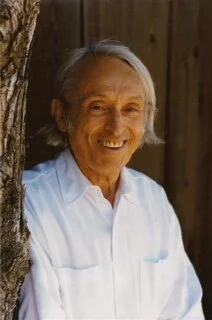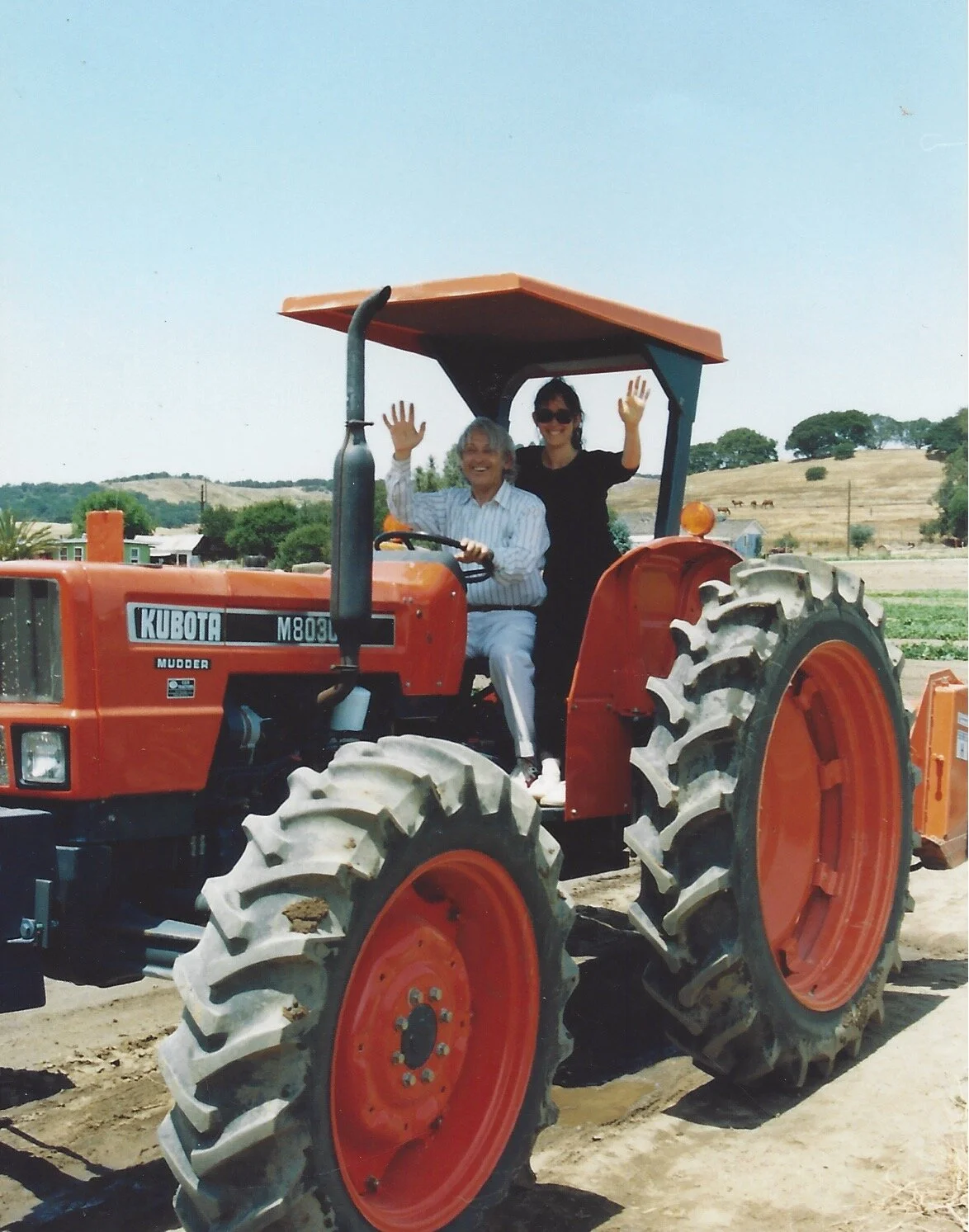Face Your Fears, Feel Your Feelings
Lessons From My Father
From as far back as he can remember, my father was a fearful little boy. One of his earliest memories was following his mother around the kitchen, holding onto her apron for security. He grew up between the two World Wars, a scary time, when anti-Semitism was virulent and always on the rise. My dad believed he must have absorbed his mother’s insecurities and fears, as well as those of his ancestors—people who’d been uprooted from their homeland for two thousand years, who simultaneously had a deep faith in God and a deep distrust of life.
Mendek’s mother, Ida
For decades after the war, my father was plagued by terrible nightmares and unrelenting depression. Happiness felt like a far-away shore he could dream about but never reach. “It felt as if I was living in a house where I only had access to the top floor—a floor with only a few tiny windows that barely allowed a small amount of light and joy to shine in,” my father wrote. “The lower floors were completely off limits to me. I wasn’t sure exactly what went on down there, but I sensed it was the place where all of my fears originated, and I feared my fears more than anything else.”
Because of his inability to cope with the overwhelming emotions related to his extremely traumatic experiences, my father became so adept at avoidance and repression that he didn’t even recognize his emotional patterns. “I never suspected that lurking in the deepest part of my inner being were my unwanted, feared and forgotten memories. Entering my own psyche felt like penetrating enemy territory. An unyielding jungle of despair and heartbreak was waiting for me. Yet I sensed that I would never be able to find a purpose for life here on earth without looking deep within, so I persevered.”
My father found the courage to seek help. Eventually, he faced his past and was able to feel and express his difficult emotions, including anger, helplessness, desperation, fear, and guilt. He discovered that when he couldn’t feel his most difficult feelings, he was dulled to the most pleasurable ones. Repressing his pain meant repressing his love.
Processing the emotions that he’d been running away from for decades was an essential part of my father’s ability to free himself from bottomless darkness to emerge into the light. In many ways, he was reborn. I’m always amazed that a man with my father’s history managed to become the happiest and most peaceful person I have ever known. His joy emanated like rays from the sun.
In my own life, I, too, became incredibly skillful at repressing my true feelings at a young age. Those suppressed emotions have kept me stuck in automatic trauma responses of heightened vigilance and anxiety that have not only impacted my ability to be happy—they ultimately contributed to many health issues.
Like my father, I’ve discovered that, “When I chase happiness, it runs away from me.” It doesn’t work out well when I try to feel only “good” emotions. When uncomfortable feelings are unacceptable, I live in constant fear of unhappy events that will lead to sadness and grief. Slowly, bit by bit, I’m learning how to be present with whatever emotions and experiences arise—to welcome them all with patience and tenderness.
My mind will never be able to convince me that the world is a safe place. Deep down I will always know the truth—everything changes, and anything alive must eventually die. The people and animals I love will get sick, age, and face difficult challenges. Running from this truth, and from the fear and pain it engenders, causes so much anxiety and makes me unable to feel safe in the present moment.
Finally, deep into middle age, I am learning how to stop thinking so much, and instead cultivate a sense of calm, peace, and safety deep within myself. When I remember my happiest times, they usually happen when I’ve felt calm and fully able to enjoy a sweet connection with the people, animals, and nature I love most.
More from the Archives: “Fear of Love”
One of the biggest challenges of co-authoring Quest for Eternal Sunshine was deciding which of my father’s writings to include in the book. I felt terrible about cutting anything, especially in the beginning when I was more focused on sharing as much as I could, versus on the importance of flow and readability. Happily, the Quest website is the perfect place to share some of the original writings that I appreciated, but didn’t include in the book. Exactly aligned with the theme of this week’s Key to Happiness, here’s a very short and sweet essay where Mendek shares how hard it was to believe that his cat loved him.
“Quest for Eternal Sunshine—A Holocaust Survivor’s Journey from Darkness to Light” is the story of Mendek Rubin, a brilliant inventor who endured three horrendous years in Nazi slave labor concentration camps while most of his family was murdered in Auschwitz. Mendek eventually turned his genius on his own psyche, figuring out innovative ways to heal from his enormous traumas to live a joyous and peaceful life. The book—a posthumous collaboration between Mendek and his daughter, Myra Goodman—is based on an unfinished manuscript Myra discovered after her father’s death.
Mendek was an extremely curious, imaginative, and inventive person from the time he was a young boy. At only seven, he devised a key that could open any lock. His family owned a hardware store in their small town of Jaworzno, Poland, and if someone accidentally locked themselves out of their home, Mendek was the one sent to open the door.
Just like the universal key he’d invented as a child, Mendek discovered the keys to freeing himself from the psychological prison he’d been trapped in for decades to find his way back to love. In this “Keys to Happiness” series, Myra shares some of the important lessons she is continuing to learn from her father every day.












